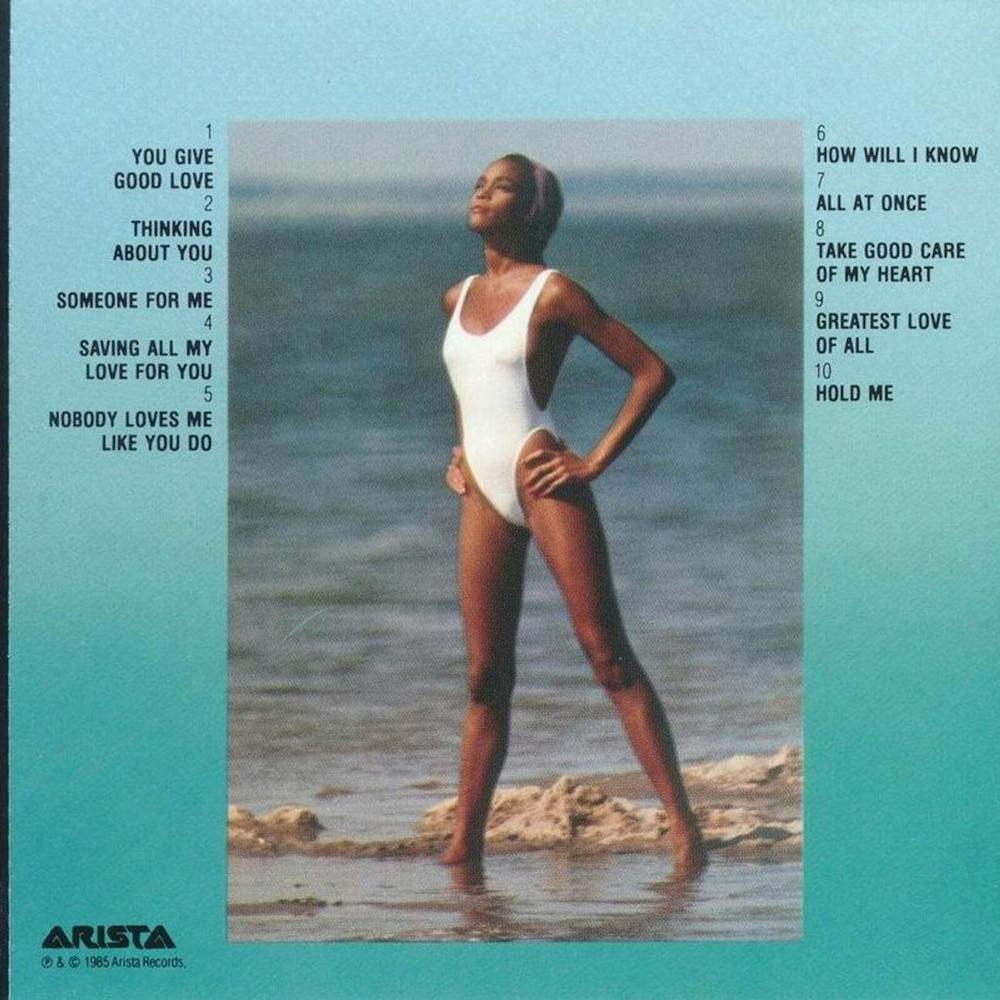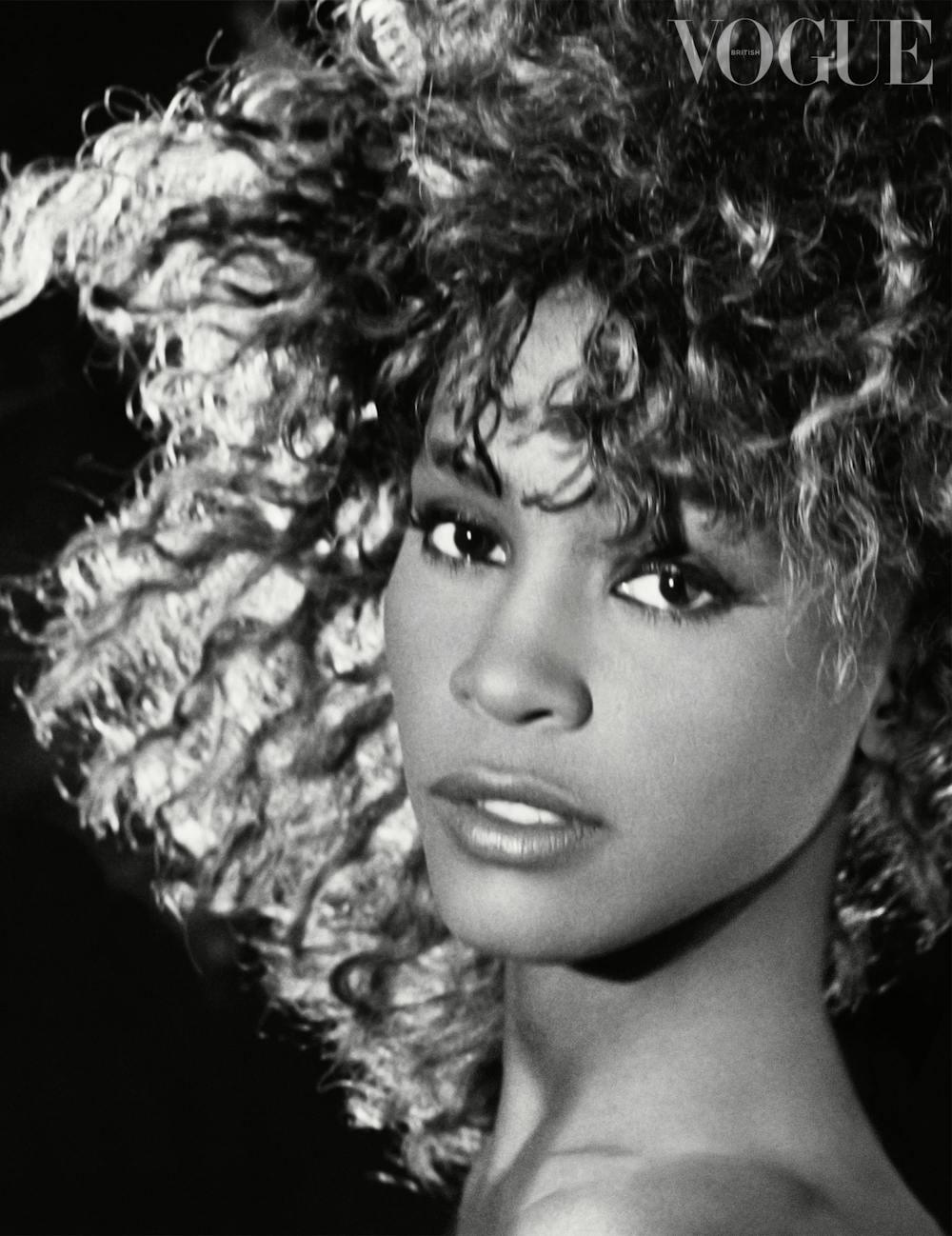One voice. One mic. One woman. The daughter of a revered background vocalist for Elvis Presley, Cissy Houston, and the cousin of Dionne Warwick was inevitably destined for a career in the music business. But I don’t think the future Rock & Roll Hall of Fame inductee could have imagined selling over 200 million records worldwide and becoming the blueprint for singers to emulate everywhere. She is a success story that numerous trivial biopics and documentaries fail to display. This month marks the 10th anniversary of the death of the megastar, and in her honor, I have chosen to remember the life of the woman simply known as “The Voice”: Whitney Houston.

Photo by Genius
She’s Simply the Best
It is the pinnacle of power, control, breath support, seamless connectivity between vocal registers, and tonal quality that demands attention when describing Whitney’s voice. This masterful vocalist could command a stage, conducting her band with powerful resonant mid-belts and an operatic head voice. Her voice possessed a warm and velvety timbre. Drawing from legends like Aretha Franklin and Chaka Khan, she crafted a sound that remains distinct, by etching her name in the vocal trinity alongside Mariah Carey and Celine Dion.
Critics often questioned Whitney’s musical knowledge and pointed to the lack of songwriting; this can be attributed to Clive Davis putting an emphasis on a crossover appeal. “Queen of the Night” on The Bodyguard soundtrack was one of the first commercially successful songs where she earned a writing credit. Beyond songwriting, she had this rare ability to make songs her own. Her versions of power ballads like “Saving All My Love For You,” “I Will Always Love You,” and “Greatest Love Of All” are undoubtedly superior to the originals. The songstress's tasteful embellishments are what set her apart. It is the art of reconceptualization, never singing a song the same.
Singing is an aerobic activity, much like a sport. It requires physical exertion, by using the majority of the muscles in your body that can make you sweat profusely. Singing was as easy as speaking for Whitney, having sung “I’m Your Baby Tonight” in a 20-minute recording session. There was not an area where she was not proficient. Whitney curated a divine experience for every audience that included brisk riffs and runs, diction, and vibrato adding to a song’s message. One career-defining moment was her first ever solo televised concert, Welcome Home Heroes with Whitney Houston in March 1991. Her performance of “All The Man I Need” is six minutes of sweat-dripping, (no air-conditioning preserves the voice from its effects) pure excellence.

Photo by Vogue
Easy on the Eyes
Just supreme talent is not what made Whitney — well, Whitney. It was also her looks that could kill. The visible happiness expressed in her veneer-like smile and alluring eyes added to her conventional beauty. She was so ravishing you would not be amiss to think you were at the Miss America pageant when watching her perform. So it is not a coincidence that her career started in modeling at the age of 16. In the early 1980s, she signed with Wilhelmina Models and became one of the few African American women to grace the cover of Seventeen magazine during this time.
Whitney debuted in the middle of what is arguably the worst decade for fashion. Her label made most of her creative decisions. However, the hideous shoulder pads and bright colors did not stop her from experimenting with her own style. Red carpets and street style are where she soared. Toward the peak of her career, she wore more form-fitting and ankle-length silhouette gowns. Her stylist would add lace or mesh detailing. Her street style is still respected today, like sporting iconic tracksuits or a chic T-shirt and jeans combination for the model-off-duty look, which is currently trendy.
Hair is an essential part of any female pop star’s image. The “I Will Always Love You” singer’s hairstyle fluctuated depending on her album eras. Since her high school days, she rocked a close cut and gradually shifted into wigs and other hair extensions. In her self-titled era, she wore variations of cinnamon-colored, poofy wigs. In the mid-1990s, after filming three movies, her hair appeared longer and in soft curls, with occasional French roll updos. Upon entering the My Love Is Your Love era, her ear-length bob became a signature.
Washing Away the Stains from Her Legacy
There has been an evident power struggle between the media and female entertainers. In retrospect, you have to question the motives of the press encouraging a cesspool of public damage to certain Hollywood stars’ mental health. For example, Janet Jackson rewrote her narrative by releasing a two-part documentary in January 2022 about her life before and after the 2004 Super Bowl incident. After 14 years, Britney Spears’ conservatorship, implemented by her father, was terminated. This has allowed us, as a society, to take a step back and examine the media’s role in the fabricated image of a celebrity’s downfall. Were reporters critiquing out of concern or instead exploiting their problems?
Unlike Jackson and Spears, there is a boundless dark cloud that hangs over Whitney’s legacy. Subsequently, the discussion of drug addiction, the tumultuous marriage to Bobby Brown, and the death of her daughter, Bobbi Kristina, all solely became her fault. Assumptions arose after frequent encounters with the New Jersey native’s newly erratic behavior. The phrase “crack is wack” had almost become synonymous with her actual name after an interview in 2003 with Diane Sawyer. The interview, paired with Bobby Brown’s reality TV show, completely obliterated the princess image the label had so desperately tried to keep intact. A burgeoning number of insidious Mad TV sketches mocked the skinny and frail Whitney doing a not-so-good job at concealing a substance abuse problem.
“Can I be me,” said Whitney, a cryptic message to the world that she was in control regardless of the public’s perception. This never stopped her die-hard fans from supporting her. Many felt more connected during her demise because it seemed she gained a sense of power by removing the velvet rope in her life. Fans have also grown upset with Whitney’s estate, managed by sister-in-law Patti Houston, for its failure to preserve her legacy. The possibility of more rereleases, remastered recordings, or never-before-seen footage of tours could introduce new generations to her music.

Photo by IMDb
A Heart of Gold
Very seldom do we see established artists give back. They usually point to their success as means of progress. Whitney was a different type of diva. She was not afraid to dim her light in the event that someone else needed to shine, especially in the music industry. During the filming of Forest Whitaker’s directorial debut Waiting To Exhale, she made a request to make the soundtrack multi-female led to music supervisor Babyface. The Grammy-nominated soundtrack produced major R&B records “Not Gon’ Cry” and “Sittin’ Up In My Room.” In the early 2000s, Whitney became a producer for major teen movies such as The Princess Diaries and Cheetah Girls. She also mentored Monica, Brandy, and Destiny’s Child. Philanthropy was a huge part of her moral character, having donated to the United Negro College Fund, AIDS Project Los Angeles, Special Olympics, and various other organizations. She was a strong advocate against apartheid, refusing to tour the country until the release of the late Nelson Mandela. During the aftermath of 9/11, she rereleased her stellar version of The Star-Spangled Banner and donated all the royalties garnered to charitable organizations in New York.
“There won’t be another me,” said Whitney in a 1999 interview. Ten years later, it is time for the conversation surrounding her life to change indefinitely. Whitney is no longer here to defend her complicated personal life. But she was correct — it is quite possible there will not be another person who can withstand the complex pressure of an amateur singer to become one of the most awarded female artists of all time, changing the pop culture landscape forever.
Featured Image by IMDb
Sources: IMDb, NYTimes, IMDb, IMDb, IMDb, IMDb, CliveDavis, Spotify, Spotify, Spotify, Spotify, Spotify, Spotify, Spotify, YouTube, YouTube, CAUT, Wilhelmina, Seventeen, InStyle, WhoWhatWear, Spotify, MyLifetime, USAToday, NYTimes, YouTube, YouTube, YouTube, Twitter, IMDb, IMDb, IMDb, Spotify, Spotify, IMDb, IMDb, IMDb, IMDb, IMDb, UNCF, Aplahealth, SpecialOlympics, History, YouTube, YouTube, YouTube
Contact Mesgana Waiss with comments at awaiss@bsu.edu and on Instagram @me.s.gana.



















